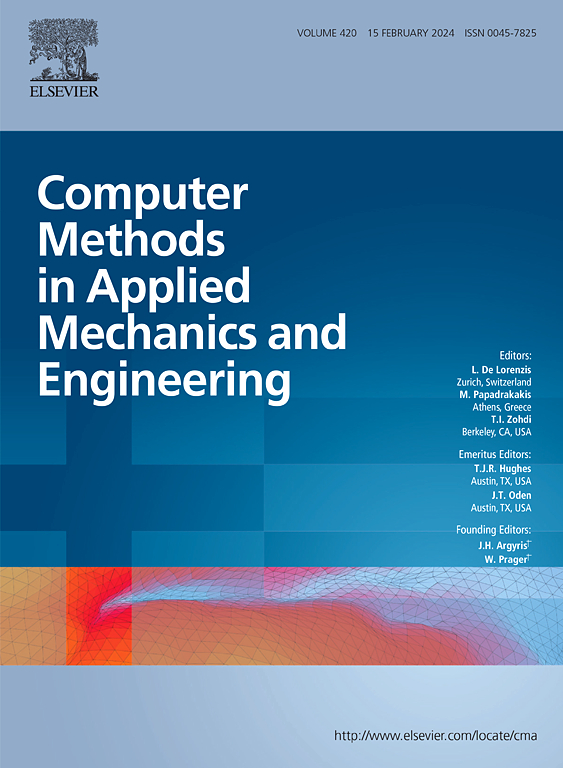Time series clustering adaptive enhanced method for time-dependent reliability analysis and design optimization
IF 6.9
1区 工程技术
Q1 ENGINEERING, MULTIDISCIPLINARY
Computer Methods in Applied Mechanics and Engineering
Pub Date : 2025-05-24
DOI:10.1016/j.cma.2025.118099
引用次数: 0
Abstract
Adaptive Kriging model has gained growing attention for its effectiveness in reducing the computational costs in time-dependent reliability analysis (TRA). However, the existing methods struggle to identify critical sample regions, leverage parallel computational resources, and assess the value for sample trajectories, thus restricting improvement in accuracy and efficiency. To address the challenges, this study proposes a time series clustering adaptive enhanced method (TSCM). TSCM first employs the time series clustering technique to partition the sample region efficiently. A novel time-dependent Kriging occurrence learning function is then introduced to account for both the uncertainty of sample trajectories and its influence on the approximated limit state boundary. Subsequently, an adaptive sampling strategy is developed to select training samples in parallel, guided by an uncertainty-based assessment of sample regions. After that, a time-dependent error-based stopping criterion is introduced to determine the training stage and terminate the update process. Finally, TSCM is extended to time-dependent reliability-based design optimization problems. Several numerical examples and an engineering case study demonstrate the superior computational efficiency and accuracy of the proposed method.
时变可靠性分析与设计优化的时间序列聚类自适应增强方法
自适应Kriging模型因其在降低时变可靠性分析(TRA)计算成本方面的有效性而受到越来越多的关注。然而,现有方法难以识别关键样本区域,利用并行计算资源,并评估样本轨迹的价值,从而限制了准确性和效率的提高。针对这一挑战,本文提出了一种时间序列聚类自适应增强方法(TSCM)。TSCM首先采用时间序列聚类技术对样本区域进行有效划分。然后引入一种新的时变Kriging发生学习函数来考虑样本轨迹的不确定性及其对近似极限状态边界的影响。随后,开发了一种自适应采样策略,以基于不确定性的样本区域评估为指导,并行选择训练样本。然后,引入基于时间相关误差的停止准则来确定训练阶段并终止更新过程。最后,将TSCM扩展到基于时变可靠性的设计优化问题。数值算例和工程实例表明,该方法具有较高的计算效率和精度。
本文章由计算机程序翻译,如有差异,请以英文原文为准。
求助全文
约1分钟内获得全文
求助全文
来源期刊
CiteScore
12.70
自引率
15.30%
发文量
719
审稿时长
44 days
期刊介绍:
Computer Methods in Applied Mechanics and Engineering stands as a cornerstone in the realm of computational science and engineering. With a history spanning over five decades, the journal has been a key platform for disseminating papers on advanced mathematical modeling and numerical solutions. Interdisciplinary in nature, these contributions encompass mechanics, mathematics, computer science, and various scientific disciplines. The journal welcomes a broad range of computational methods addressing the simulation, analysis, and design of complex physical problems, making it a vital resource for researchers in the field.

 求助内容:
求助内容: 应助结果提醒方式:
应助结果提醒方式:


